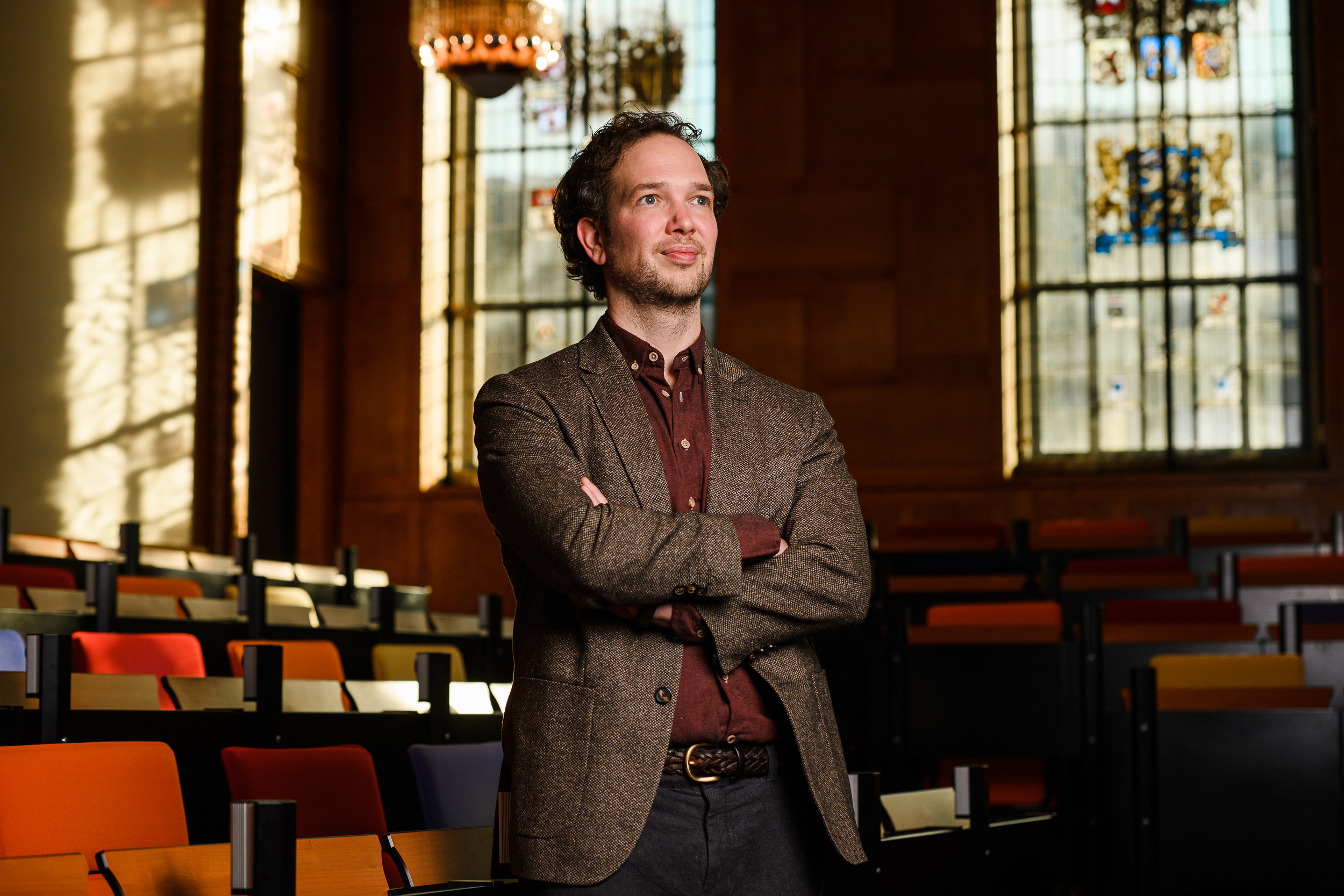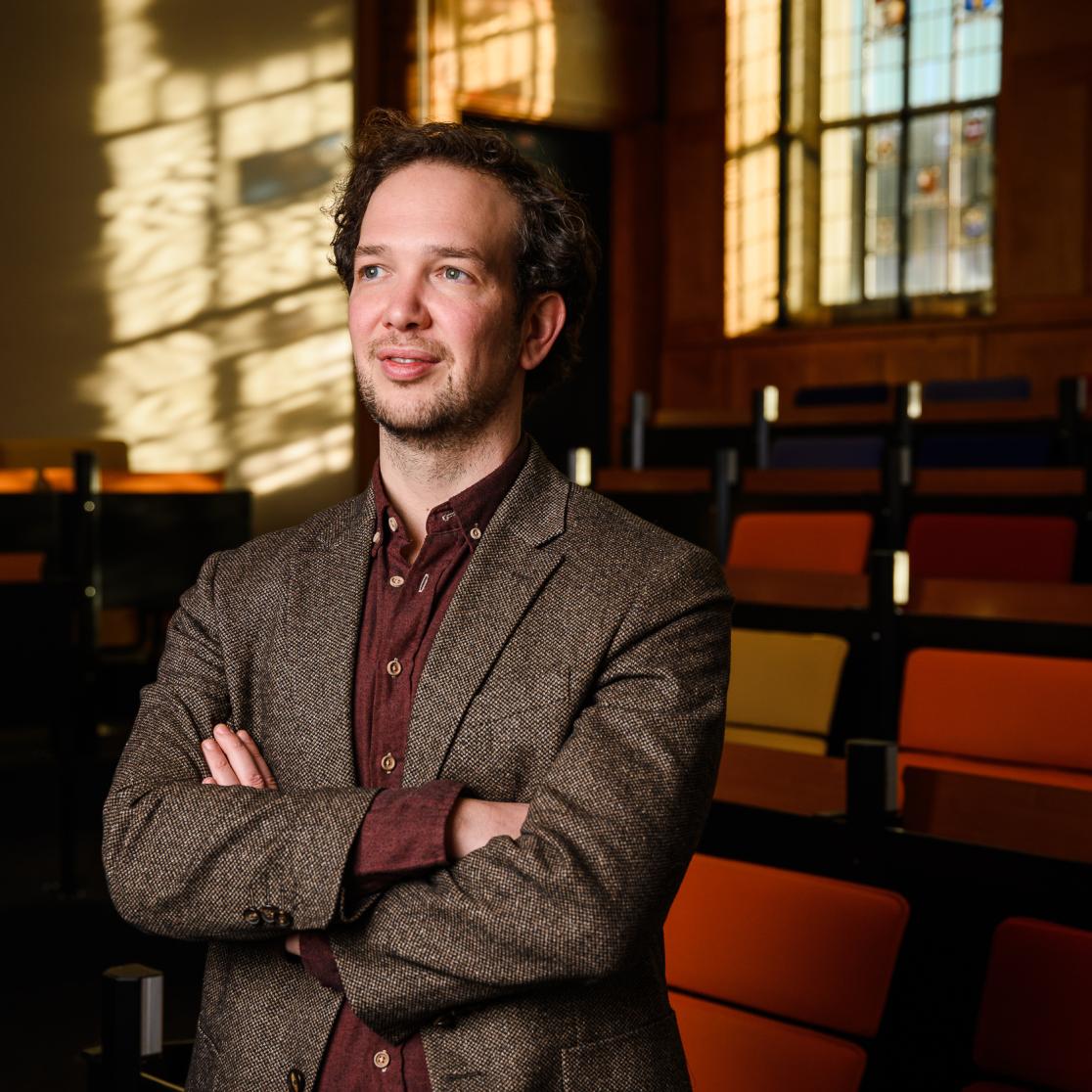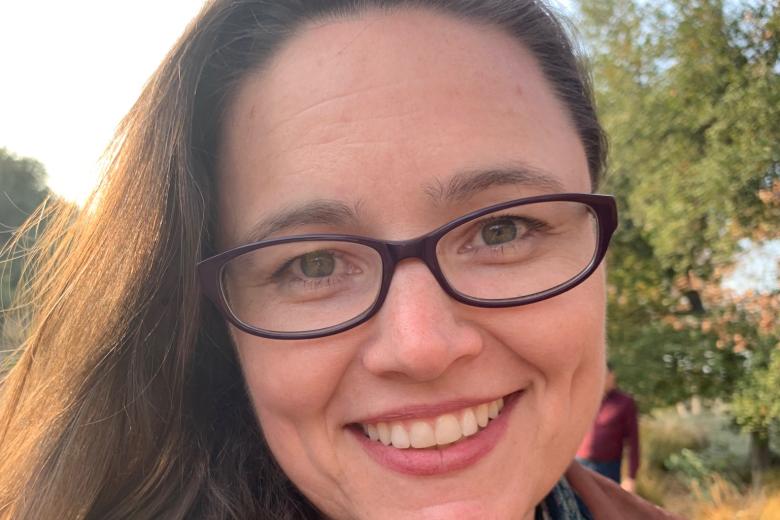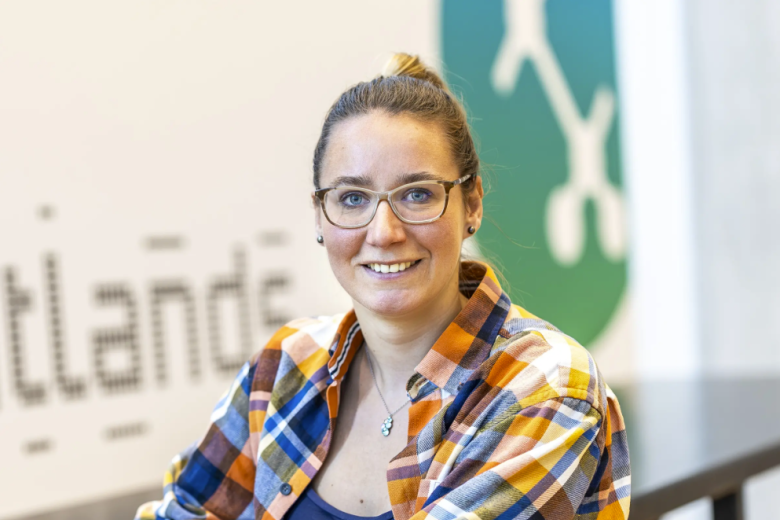The ifs, ands, and buts of cannabis legalisation
As an assistant professor for criminal law and criminology, Robin Hofmann’s main interest lies with organised crime. And when you live in the Netherlands, that topic will quickly lead you in one direction: researching cannabis and its legalisation. “The Netherlands is the perfect place to study organised crime: not only is it a very hot topic, but the Dutch take a progressive approach to it.”
After obtaining his law degree, Robin started his PhD in Bochum. “I’d always been interested in European criminal law and cooperation between member states when it comes to frighting crime. I spent a lot of time in Kosovo researching the police and how the EU is stabilising peace. That was my main interest: how does the EU influence and improve cooperation between member states when it comes to fighting crime?”
Germany or the Netherlands
As a German researcher in the Netherlands, it seems fitting to focus research on comparing both legal systems. Particularly one question drives Robin in the past years:
How are Germany and the Netherlands’s approaches towards cannabis different? “The Netherlands is famous for its coffee shops, which makes most people think cannabis is legal here. However, it’s not legal but merely tolerated. Coffee shops are allowed to sell a small amount of cannabis but cannot legally buy any for selling it to costumers. The coffee shops are supplied illegally which has created a seedbed for organised crime.”

“In Germany, on the other hand, cannabis remains illegal. It’s somewhat tolerated when it comes to personal use, but you can’t buy it in shops and have to rely on the black market.” Robin thinks the Dutch system has both pros and cons.
“The concept of coffee shops makes sense: they were born in the 1970s out of a desire to differentiate between drugs. When heroin’s popularity skyrocketed, the Dutch were eager to create a safer environment for consumers of soft drugs like cannabis.”
Should we legalise?
Let’s ask Robin the key question: should cannabis be legalised? “I’m not excited about the idea, but criminologically speaking, it is better to legalise than criminalise. Those in favour of legalisation think all crime-related problems will melt away with legalisation. I’m less optimistic, but that doesn’t mean there aren’t any good reasons to try.”
“Creating coffee shops did work in the beginning. But it also created a tension between legal selling and an illegal supply which is still present. This has created a state of open conflict and a thriving black market: the Netherlands has become a gateway for the whole of Europe when it comes to drugs.
Coffee shops as-is were never going to be a comprehensive solution to the drug problem.”
Robin sees three reasons for legalising cannabis:
- Buying from a licensed shop means a guarantee of quality and safety. The dangers of buying contaminated or stretched weed can be minimized.
- The black market has created more potent strains of cannabis. Legalising it will allow the state to control the potency and reduce health risks.
- Legalising cannabis will allow the government to get a grip on the black market. It won’t disappear entirely, but it will shrink.
But, Robin says, there are some drawbacks. “Legalising cannabis means a wider acceptance of drugs. Look at alcohol: we know it’s bad for us, but it’s sold everywhere without as much as a raised eyebrow. Awareness for health risks related to drugs like alcohol or nicotine are rising. We even become stricter with supposedly harmless substances like sugar. We have to ask ourselves: is legalizing another drug the right way to go?”
We also don’t know if legalising cannabis will have the societal impact we hope it will. “People under the age of eighteen will still have to rely on the black market. Cannabis has the worst health effects for that age group, who would benefit most from a more controlled environment.”
Plus, Robin isn’t sure the black market will disappear. “Legal shops will probably only exist in urban areas, meaning people who live elsewhere would still rely on the black market. And what happens if legal cannabis is too expensive?” But legalisation’s finality is its biggest drawback, according to Robin. “Once you’ve legalised it, you can’t get go back. That’s why the Netherlands’s pilot programme is an excellent idea.”
Consequences of legalisation
There are two big legal roadblocks when it comes to legalising cannabis. One of them is international law, but “let’s not look at that,” says Robin. “The international rules are strict and have remained unchanged for decades: all drugs are illegal and selling them is a punishable offense, except for scientific or medicinal purposes. European law is more interesting to examine.”
The European Union wants to have similar laws in all of its member states, meaning it wants to avoid situations where a drug can be legal, tolerated or illegal depending on country. “That’s a problem for Germany because so far, they are the only EU Member State setting out to fully legalize cannabis. This lack of coordination with other EU countries may trigger the European Commission to reject the idea. The German approach to legalisation just isn’t smart: there’s no pilot project, data-gathering or effort to convince the Commission or other member states to get them on board.”
Return to lawreview2022

Then there’s the European Court of Justice. “If the Commission rejects Germany’s attempts to legalise, they might sue the country through the Court of Justice. Chances are slim that the Court will accept Germany’s plans, but who knows? Maybe the judges take a full turn in their legal approach to the soft drug. If you ask me, this is an exciting time to look at this legal debate. We really don’t know what will happen!”
Also read
-
Riding the waves of change: From a summer vacation to a life that feels as good as it looks
For SBE alumna Victoria Gonsior, one spontaneous decision: trying surfing sparked a journey of self-discovery, leading her to redefine success, embrace joy, and build a career that aligns deeply with her values. From quiet beaches in Sierra Leone to coaching sessions rooted in purpose, Victoria...
-
AI's moral architects: neither demi-gods nor code monkeys
Who’s to blame if AI goes wrong? And who’s responsible for it not having a negative impact in the first place? In her PhD thesis, "A Showing of Hands: Making Visible the Ethical Agency of AI Developers", Tricia Griffin looks at the people behind the technology and the clichés. She argues that we...

-
Somewhere between Maastricht and Brightlands
What attracts international students to Limburg? And what does the Brightlands ecosystem mean for their education, research and future? In this series, we speak with students from all over the world who are shaping their careers at or through Brightlands. Ira Berg is one of these students.
